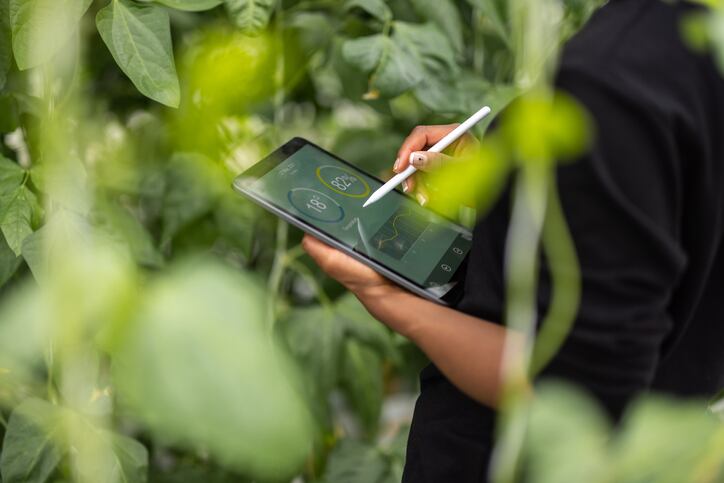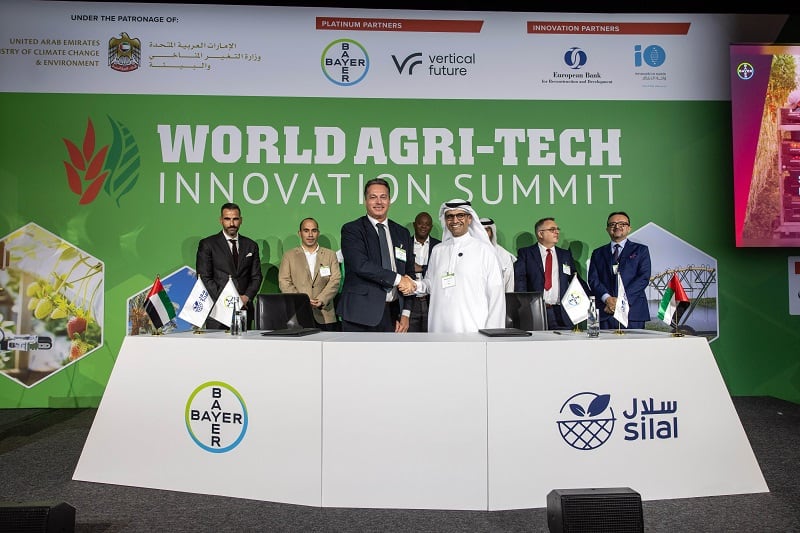The agtech sector entered the new year in a squeezed investment climate. But farm management software provider Agrivi, which last year raised €3.9 million to expand into the US and key European markets, is confident the industry will successfully traverse today’s challenging capital markets.
One reason is a global regulatory push that Agrivi’s founder and CEO Matija Zulj believes enforces sustainability to all. “The era of voluntary ESG reporting is coming to its end as regulators all over the world are bringing new regulations and directives to make ESG reporting obligatory, as well as to standardise it to make reports of different companies comparable,“ he told us.

Indeed, the European Union has taken the lead with a set of green directives, such as EU Regulation on deforestation-free products, the Corporate Sustainability Reporting Directive and Green Claims directive.
Other countries are also working on introducing the ESG reporting requirements. The US, for example, is working on the Climate Risk Disclosure Regulation (CRDR); the UK on the Green Claims Code, while India has made ESG reporting obligatory for the top 1,000 listed companies. Australia, too, has just released new draft legislation which would introduce mandatory climate-related reporting requirements for large and medium sized companies. So the list goes on.
For agri-food companies, these requirements bring a significant obligation, argued Zulj, as most agri-food companies depend on sourcing agricultural products and in average, agriculture supply chain of food companies makes even 89% of their total GHG emissions.
“Driven by regulatory obligations, agri-food companies will become a major driver of digitalization in agriculture in 2024 by bringing the digital agriculture solutions to their agriculture supply chain to measure the current state, implement improvements and secure data for reporting,” he declared.
In combination with obligations of companies to report on ESG, awareness of consumers about all the aspects of products they consume is expected to skyrocket. “Companies that will take the lead in transparent approach to consumers are expected to benefit from the premium until the transparent and traceable products become a norm.“
Regenerative agriculture further prioritised and accelerated
New regulations and directives, meanwhile, will see regenerative agriculture – or a broad farming approach that aims to improve the health of the soil, biodiversity, climate, and water resources while supporting the development of farming businesses – further prioritised and accelerated, he predicts.
“Its potential for carbon sequestration in soil that can not only reduce but completely offset the carbon footprint of agri-food industry makes the regenerative agriculture a major priority. 2023 brought us a series of record-breaking extreme weather hazards caused by climate change. Extremes were recorded all around the globe, from July being the hottest month ever worldwide, wildfires that burned millions of hectares of land globally, series of mega cyclones and storms resulting in major floods in Europe, and all that resulting in crop losses.
“Scientists warn that these types of extreme weather events may become more frequent, intense, and longer-lasting, so governments globally must speed up the preparation for this new reality of climate change, which may become increasingly common as the planet warms up.
“Regenerative agriculture programs and digitalization will play a major role for transitioning towards more efficient, sustainable and resilient agricultural production.”
Agribusinesses seek agtech solutions – but struggle to use them
Other problems exist for the agtech sector, including a hesitancy among many farmers to adopt digital solutions. However, this might not be blamed on farmer distrust – but poor data.
Zulj therefore still spots untapped potential in digital agriculture.
“A decade of digitalisation in agriculture has passed, with over 50% of enterprise agribusinesses using some form of digital agriculture tools,“ he told us, “while the adoption at medium-sized and small farms falling significantly to less than 5% in the majority of markets, making the digitalization of agriculture still early stage, but with a lot of potential.“
He said that agribusinesses recognise the obstacles that stand in the way of digital technology adoption, such as connectivity issues, budget constraints and an overall skepticism towards AI-generated predictions. However, external pressures like climate change, inflation, supply chain inconsistencies, regulations, and overall need for higher productivity act as catalysts pushing them towards agtech adoption.
Moreover, real-life results of companies show tangible return on investment in farm management software driven by cost optimisation, increase in yield volume and quality, waste reduction and overall farm profitability increase, he added, making agtech solutions even more attractive in overcoming economic challenges that agribusiness face.
He agrees that generative AI has a potential to accelerate the digital transformation of the entire industry.
Its ability to do the last mile of presenting and communicating information to end users in a simple and human-like personalized conversation has shown to be ‘truly remarkable’, he observed.
“Generative AI has its role in a wide range of solutions to real-life problems in agriculture, however its perfect immediate role is to democratize access to technology and empower farms of all sizes worldwide with knowledge and advice in their language.”
New priorities for all those within the agri-food value chain
Zulj concluded 2023 was yet another year that made a huge impact on agriculture, which is why is perfectly clear that ‘business as usual’ farming is no longer an option if we are to meet the future demands of a sustainable and secure food system.
“Global economic, geopolitical, environmental, and technological factors are reshaping the agri-food industry and are putting new priorities for all stakeholders within the agri-food value chain, which could potentially accelerate digital transformation and improve the industry,” he said.
“Not only farmers are getting more open to technology solutions witnessing precise benefits that help farmers make informed choices and take precise action, but new regulations and technologies will help speed up the adoption in the whole agri-food industry to lower the industry’s negative environmental impact and make more sustainable and resilient food system that will meet the growing global food demand due to the growing population.”





